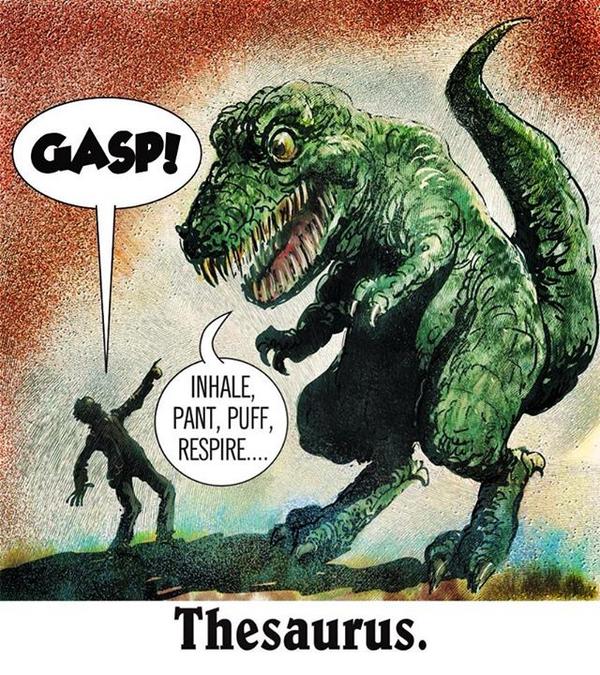I Like Big Words and I Can Not Lie: My Faults as a Writer
I read an NPR Books article yesterday on Nancy Reisman’s novel Trompe L’Oeil. I was initially drawn to the review because the book’s title is an art term, and I’m a sucker for stories about art. But while there are apparently sections of the novel that describe and interpret various artworks, it turns out the story is mostly a sad tale of a daughter’s death and the way the family mourns her loss over the years. What struck me most, however, is that I suddenly realized the reviewer, Michael Schaub, could have been critiquing my writing instead of Reisman’s. And, guess what? He wasn’t all that impressed.
Schaub says that Reisman is a talented writer. In the best parts of the book he admits that Reisman writes beautiful descriptions of the family’s grief. Unfortunately, he finds that overall Reisman’s “ponderous prose” gets in the way of any real emotional connection. He explains: “Reisman is an excellent sentence-level writer — for the most part — but frequently the writing gets the better of her, as if she can’t find her way out of her own descriptions.” He goes on, calling her work “overwritten,” “self-conscious,” and “heavy-handed,” so that her story becomes more of a “philosophical reflection” than an absorbing journey through deep sadness. Schaub recognizes Reisman is a gifted writer, but, at least for him, her story comes across as too mannered, perhaps even too pretentious, to be truly moving.
I am guilty of this kind of writing as well. Technically correct, well-written, but too overwrought to be vulnerable, to make that connection with the reader. What can I say? I have a tendency toward the complex and the ornate. Simplicity just isn’t really my style, but I understand it’s benefits. It offers an immediacy, an accessibility to the story and its characters that fosters connection. Elaborate sentences with exotic words may be beautifully composed, but they often don’t have the impact of a succinct phrase with just the necessary essentials.
To borrow an example from architecture, it’s the difference between a Rococo palace with it’s intricate filigreed gold leaf and lavish excess, and the clean lines, geometric purity, and clarity of purpose of a modern skyscraper. The former feels contrived. There is no way to feel quite at home in a Rococo interior. The latter eschews fancy for functionality and the result soars.
And yet, I feel like I have to hide a bit of myself when I tone down my wordiness. Does it make me a better writer to stay true to myself and my love of big words and complicated sentences, or is all that really just a hindrance, a kind of screen that shields the emotion and character of my writing from my readers? I love my thesaurus too much to give up on elaborate wordsmithing completely. I think it adds interest to my writing, but I know there are many people that view it as literally showmanship.
All things considered, I think it could be worse. An inordinate love of words and the intricacies of language doesn’t necessarily take you out of the game. It’s far easier to scale back florid turns of phrase than it is to scale up anemic writing. Besides, writing is a practice, a discipline. There is no end to learning how to write, there’s always more you can do to make your words ring true. It’s a lifelong process, and my words and I are in it for the long haul.
Image credit: Lu Hersey’s Twitter Post
- Categories:
- Uncategorized
